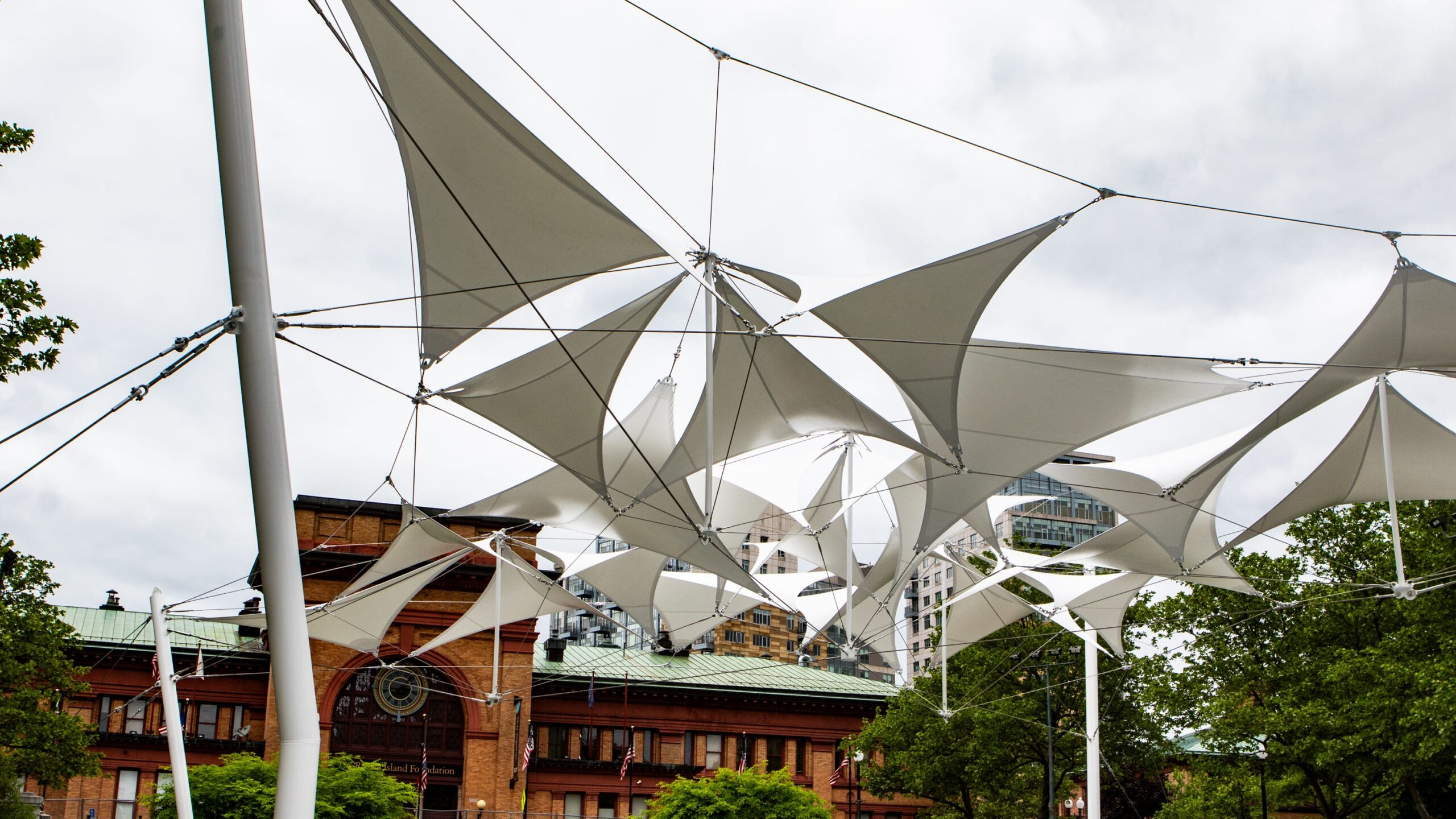Providence’s mayor and City Council are split on the proposal, which is part of the cash-strapped city’s effort to raise new revenue

See skaters using the Providence Rink under the new shade array
See skaters using the new Providence Rink after a big upgrade.
- Providence is considering a $2 tax on tickets at venues with 800+ seats to generate revenue.
- Mayor Smiley opposes the ticket tax, favoring a parking tax on visitors instead.
- Venues and businesses argue the ticket tax would hurt the local economy, driving events and patrons to neighboring states.
- The proposed ticket tax is currently under further study by the legislature.
PROVIDENCE – Would a new $2 ticket tax deter anyone from going to the Providence Performing Arts Center?
Would it make more of a difference to the parent with two or three kids headed to the Ice Capades or the P-Bruins or any other sporting event at what is now known as the Amica Mutual Pavilion − on top of a proposed new parking tax?
At what point do potential visitors to the Capital City stay home?
On this issue, Mayor Brett Smiley and the Providence City Council are split.
But there is no divide among the people who run the city’s star attractions that any new admissions taxes will hurt business and that, in turn, will hurt the city a lot more than any new revenue might help.
The divide:
“As you all know … Providence has some revenue issues right now and we want to give … the City Council as much flexibility as possible,” the lead ticket tax sponsor, Rep. Rebecca Kislak, told the House Finance Committee at a May 29 hearing.
Echoing the theme, Providence City Council President Rachel Miller told the lawmakers: “It is one kind of tool in the toolbox. We estimate that it would bring in $3 million, which goes a long way to alleviating some of the burden on property tax.”
And, “It is, I think, a minor surcharge, right? So for someone who is paying $50 [for a ticket], they’ll pay $2. I do not think that dissuades anyone from being part of the wonderful art scene that we support and love in our city.”
But when asked where the mayor stood, Smiley spokesman Josh Estrella told The Journal: “We appreciate the intent of the legislation’s sponsors in exploring new strategies to diversify the city’s revenue sources so that we are not relying solely on property taxes.
“However, we have heard from community members, stakeholders, artists and local vendors that this approach could lead to significant unintended negative impacts on our art, culture, sports and entertainment community.”
Estrella said Smiley is instead “pursuing and prioritizing” a proposed new parking tax “on visitors who consume services in our city without directly impacting our sport and entertainment venues.”
That legislation – allowing the city to add a surcharge of up to 7% on parking – is slated for a full Senate vote on Tuesday, June 3.
The proposed new taxes are all part of the cash-strapped city’s effort to raise new revenue to pay the $15 million that it owes to the city’s school department.
In order to balance its budget, Providence is currently petitioning the General Assembly for a one-time exemption from a state law that prevents cities and towns from increasing their tax levy by more than 4% a year.
Legislation that would allow the city to exceed that cap, H6162, passed the House of Representatives on a 56-17 vote on May 27. It has yet to receive a vote in the state Senate.
Who opposes the ticket tax?
The proposed new ticket tax at venues with 800 or more seats drew strong opposition from:
The Rhode Island Philharmonic Orchestra and Music School, the Rhode Island Convention Center, the Amica Mutual Pavilion, the Providence Performing Arts Center, the Providence Warwick Convention & Visitors Bureau, Lupo’s Heartbreak Hotel, the Providence College Friars, the Providence Bruins and, with the opportunity potentially open to other cities, the Preservation Society of Newport County.
PPAC’s president and CEO, Lynn Singleton, summed up the argument: “No other state in New England imposes such a tax on ticket sales at venues of this size.
“In an already highly competitive market, this tax would act as a tariff on Rhode Island, further incentivizing promoters and event organizers to choose venues across the border in Connecticut and Massachusetts, states where we already struggle to compete for shows.”
He warned the legislators: “This loss would not only reduce the number of events hosted at PPAC and other local venues but … local hotels, restaurants, and small businesses [will] lose critical revenue. Fewer shows [also] mean fewer jobs for staff, contractors, and vendors who rely on these events for their livelihood.”
Bottom line, he said: “This proposed tax jeopardizes not just the entertainment industry, but the broader local economy that thrives on live performances.”
“Venues like PPAC, The VETS, and Trinity Rep … don’t just put on great shows,” echoed former Providence Mayor Joseph Paolino. “They fill hotel rooms, keep restaurants busy, and keep our city vibrant.”
At the downtown restaurant he owns, Paolino said: “I see it clearly: When there’s a big performance in town, we see it in our bookings and our dining room. This tax would discourage attendance, cut into that activity, and hurt the small businesses that depend on it.”
The legislation was held for further study.
